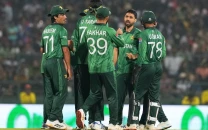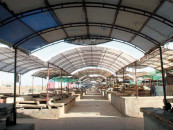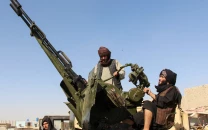The missing link
Sympathy must not make us blind to the darker shadows that lurk behind the visible stories of missing persons.

Is it really that simple? Why is it that most of the missing persons belong to a certain ideological and religious conviction? Here, I am not talking about the Baloch. That is a separate matter. This piece focuses on those who have alleged links with radical outfits. In my several years of reporting, I have consistently encountered this situation. Those who are picked up often had some grey areas in their lives due to which they were netted. It is quite understandable that the families often claim their absolute innocence. No one likes to confess to wrongdoing. Quite often the families of persons who have been involved in militancy are unaware of the activities of their relatives.
By focusing solely on the families’ plight, are we overlooking and even ignoring the other side of the story, which is perhaps darker and uglier? Some people are quick to denounce the militants after each terrorist attack and sarcastically point at the public apathy towards such attacks. But I wonder why such reflection is not employed in the story of the missing persons. Why aren’t people ready to even look at the possibility that, alongside the grim tales of torture and illegal detentions, there may also be macabre terrorist plots? Lack of coordination between different law enforcement agencies, weak prosecution, legal lacunae and an outdated law of evidence compound the problem.
I recall several illustrative examples but would cite just one. In 2007, I wrote a feature about the missing persons for The New York Times. One of the persons I interviewed belonged to Gujranwala. Muhammad Tariq was arrested in connection with the assassination attempts on General (retd) Pervez Musharraf. His ordeal in illegal custody was depressing. He denied the charges against him and said he was arrested because he used to give charity to a banned outfit. Some months later, I happened to be outside Adiala Jail in Rawalpindi. A female prisoner was being released. She had also been implicated in a case related to another assassination attempt on Musharraf. Her husband had hidden weapons in their Islamabad apartment and the police claimed that she was an accomplice in the plan. But it couldn’t provide evidence that satisfied the court and she was granted bail. It was late in the night and several people had gathered to receive her. To my surprise, I saw Mr Tariq standing there too. Upon inquiring, he replied that he was there to show solidarity for her. It dawned on me that no matter what is publicly stated, there are always linkages that bind such elements or foster affinity between them.
We must oppose illegalities in the efforts against militancy and terrorism. But such sympathy must not make us blind to the darker shadows that lurk behind the visible stories.
Published in The Express Tribune, May 11th, 2012.














COMMENTS
Comments are moderated and generally will be posted if they are on-topic and not abusive.
For more information, please see our Comments FAQ